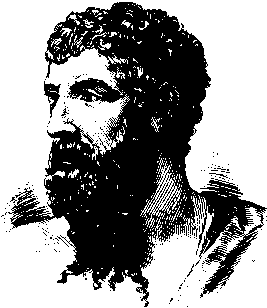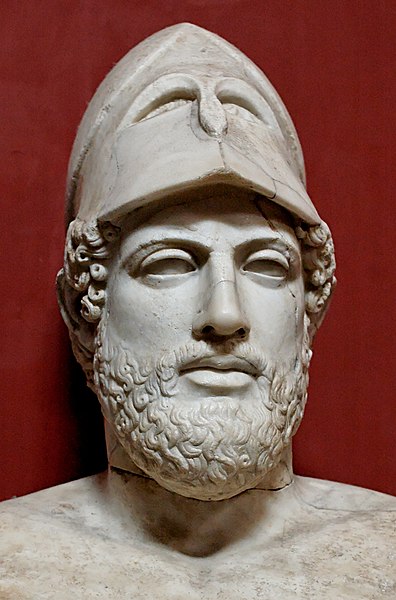Chapter 11 – Pre-Renaissance Worldviews
Every
society must work out and articulate a view of the physical universe, a way of
seeing the world, a way that then becomes the base on which the society’s value
system is to be built. This is no minor matter; while philosophers may dally
over the questions in a theoretical way, real folk have to deal with life. They
have to have some code in place that helps them decide how to act. World view,
values, and behaviours must form a coherent system under which each individual
is empowered to make decisions and take action so the entire society can
efficiently operate and survive in its always changing, always demanding
environment.
All
societies know this in some deep way. Societies up until our time have worked
out their world views, values, and morés to the extent they have because people
everywhere have always placed great stock in their society’s model of how the
material universe is constructed, how it operates, and where it is going. They
know implicitly that their worldview must be used as their guide when they are
trying to decide whether an act that feels morally right is practicable. There
is no point in striving for the “impossible”.
So
let’s keep moving forward in this task of building a new, universal moral code,
but let’s also move with all the prudence we possess. What is at stake is
everything.
Therefore,
before we begin constructing this new system, we need to get our thinking into
the necessary mindset by considering the most salient peaks in the histories of
some societies of the past, in order to see how systems of world views, values,
and behaviours coordinate and evolve.

G.W.F. Hegel
In
this chapter, Philosophy students will notice parallels between aspects of my
ideas and the philosophy of Hegel, and I admit freely that similarities exist.
But I also have some major points of disagreement with Hegel, which I will
explain along the way. For those readers who are not Philosophy students, please
note that I will give only a very quick version of my understanding of Hegel.
If you find the ideas presented here at all interesting, you really should give
Hegel a try. His writing is difficult, but not impossible, and it has also been
interpreted by some disciples who write more accessibly.1
However, in
this book, let’s now get back to our analysis of the world views, values, morés,
and behaviour patterns that are discernible in the history of some of the
societies of the West.

Aeneas fleeing the destruction of his city, Troy (Tintoretto)
For instance,
let’s consider the ancient Greeks, the ones who came long before Socrates’
time. They portrayed the universe as an irrational, dangerous place. To them,
the gods who ran the universe were capricious, violent, and cruel, which also
described the Greeks’ worldview. Under this view, humans could only cringe
fearfully when confronted with the gods’ testy humours. Zeus, Hera, Poseidon,
Ares, Hades, Athena, Apollo, and the rest were all lustful, jealous, cruel, and
unpredictable. Zeus, especially, had thunderbolts; Poseidon inflicted
earthquakes; Apollo, plagues.
But
as Greek culture advanced, this worldview evolved. By the Periclean Age, many
Greek stories and plays portrayed humans challenging the gods. At the same
time, the Greeks evolved their system of values toward a braver, smarter
lifestyle. They began trying to explain reality in ways that left room for
people to understand and even to manipulate the events in their world.
Once
their worldview included those possibilities, they began to create action plans
that enabled humans to cause, hasten, or forestall events in the world. They
tried out the daring action plans, and when some worked, more daring plans
followed. (Edith Hamilton articulates these ideas well.2)

Aristophanes, Greek
comic playwright
It
is important to see that human individuals and groups will normally not attempt
any action they think of as taboo. Ancient tribes who happened upon an action that
seemed contrary to, or outside of, what was appropriate for humans in their worldview
only grew upset and fearful.
Whether the action got results or not, the only
thing most of those people wanted to learn was how to avoid putting themselves
in the same situation again. They sought to avoid it for fear of bringing the
gods’ wrath down on them. Once in a long while, a genius might question his
society’s worldview and even describe an alternative one, but he often paid
dearly for such audacity—by being ostracized or put to death.

Euripides, Greek tragic
playwright
However,
changes in a society’s worldview and then in the society’s values and morés can
also evolve more gradually, helped by many lesser geniuses. By the Golden Age
of Athens, philosophers, writers, and artists were offering works that only a
few centuries earlier would literally have been unthinkable. Their worldview had
evolved to allow for at least some degree of human free will. The works of Plato,
Aristotle, Euclid, Euripedes, and Pythagoras could only have been produced
under a worldview in which a person could conceive of actions challenging the
orthodox beliefs of the tribe and even the forces of the universe, even though
the challenge might only rarely succeed.
At the same time, their neighbours, the Spartans, were evolving their society, the perfect military state. The clash called the Peloponnesian War became inevitable, and Athens lost. A few years later, the Macedonians out-did the Spartans, and after another generation or two, the Romans ended the matter by conquering them all.
At the same time, their neighbours, the Spartans, were evolving their society, the perfect military state. The clash called the Peloponnesian War became inevitable, and Athens lost. A few years later, the Macedonians out-did the Spartans, and after another generation or two, the Romans ended the matter by conquering them all.

Pericles, Athenian leader at start of Peloponnesian War
No comments:
Post a Comment
What are your thoughts now? Comment and I will reply. I promise.